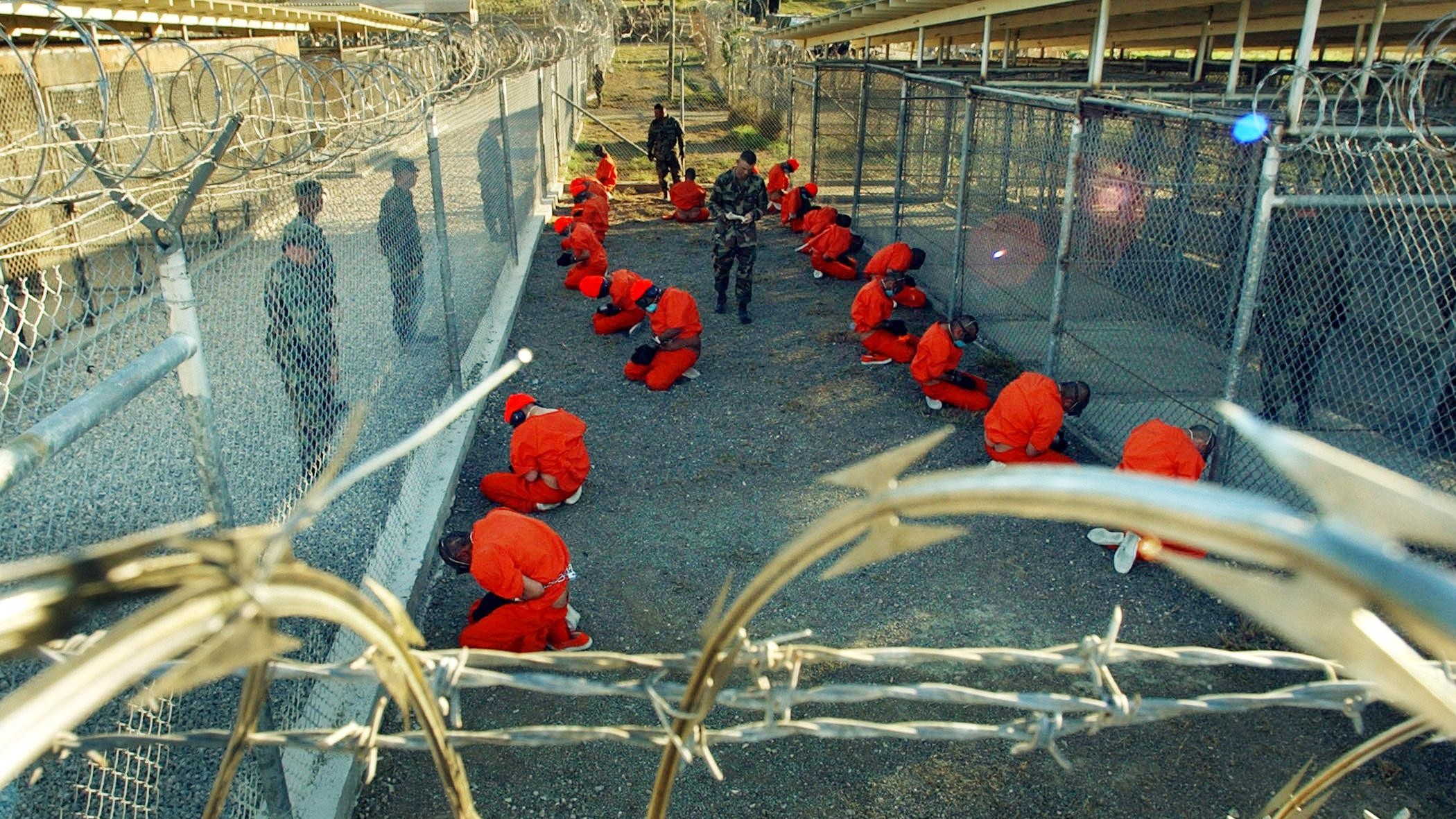Secret weapon behind Chuck Hagel’s plan to shrink US army
It’s oil. Self-sufficient in energy because of shale oil, the US no longer needs to fret about the sheiks

A free daily email with the biggest news stories of the day – and the best features from TheWeek.com
You are now subscribed
Your newsletter sign-up was successful
IN 410 AD the Emperor Honorius withdrew the last remaining legions from Britain and told us we would have to look to our own resources for defence. With the deep cuts in the size of the US military announced at the Pentagon yesterday by Secretary of Defence Chuck Hagel, it looks as though the United States is beginning the same process.
The biggest losers in Hagel’s plan will be the US Army, shrinking in the next five years from 520,000 to around 440,000. Significantly, the army will not procure a new armoured personnel carrier (APC).
An updated, up-armoured, wheeled or tracked APC, able to offer protection against the latest and most sophisticated mines and bombs, would be high on the shopping list if US planners were envisaging a repeat of the long-term occupation of places like Iraq.
The Week
Escape your echo chamber. Get the facts behind the news, plus analysis from multiple perspectives.

Sign up for The Week's Free Newsletters
From our morning news briefing to a weekly Good News Newsletter, get the best of The Week delivered directly to your inbox.
From our morning news briefing to a weekly Good News Newsletter, get the best of The Week delivered directly to your inbox.
The US Air Force will also mothball its A10 ‘Thunderbolt’ - a slow but formidable aircraft, specifically designed for Close Air Support, and beloved of GIs in Iraq and Afghanistan for its ability to bail them out of trouble.
The plan represents a revolution in military affairs. In effect, the United States is conceding that its attempts to occupy Iraq and Afghanistan have failed, and that it is no longer seriously planning anything similar in the future.
Eminently sensible to many, this view is likely to receive a rough ride in Congress. A lingering attachment to the American imperium, and the pork-barrel politics of which bases are to be closed in which state, or congressional district, will ensure a powerful opposition.
Equally, Chuck Hagel is likely to prove a formidable manager of the political processes required to get his way. A three-term senator from Nebraska, he volunteered for Vietnam in 1968, fighting there as an infantry sergeant in the Mekong Delta. He has two Purple Hearts.
A free daily email with the biggest news stories of the day – and the best features from TheWeek.com
It is also an ideological victory for the ‘Bidenistas’, the military thinkers sympathetic to the views of Vice-President Joseph Biden, who in 2010 argued strongly against the so-called ‘surge’ of 33,000 extra troops for Afghanistan.
The Bidenistas have always preferred stand-off operations – drones, raids, special forces - to large numbers of ‘boots on the ground’. Even as the army gets smaller, Special Operations Command will expand by 3,700.
Biden and his allies lost the argument to hawks like Hilary Clinton, and Hagel’s predecessor, Robert Gates (who, incidentally, is gushingly enthusiastic about Mrs Clinton in his recently published autobiography Duty: Memoirs of a Secretary at War, and icily dismissive of Biden). But if Biden was right all along, it could strengthen his hand for a presidential run. Certainly his strategic judgment is now in fashion.
On the naval side, all 11 carrier groups will be retained under Hagel’s proposals and will continue to be crucial to the projection of American military power. The two most important pieces of paper POTUS (the President of the United States) receives at eight o’clock sharp each morning are an intelligence summary known as the Presidential Daily Briefing and a map of the world showing the location and readiness of the carriers.
Hagel’s plan has a long way to go yet. But lingering behind it is a new strategic reality partly based on an acceptance of failure – however noble the intentions, and despite the bravery and endurance of American soldiers in the field – and partly on a startling fact soon to be upon us: American self-sufficiency in energy.
In November 2013, thanks to the shale oil boom, US monthly domestic oil production exceeded imports for the first time in 20 years. Within ten years or so, America will not be shipping any oil from the Middle East.
The full implications of this are hard to discern at this stage. The security of the state of Israel is likely to remain a high priority, whoever sits in the Oval Office. But the days of American presidents fretting in the Situation Room late at night over the ultimate fate of the Saudi royal family or the Gulf sheikdoms are drawing rapidly to a close.
-
 Local elections 2026: where are they and who is expected to win?
Local elections 2026: where are they and who is expected to win?The Explainer Labour is braced for heavy losses and U-turn on postponing some council elections hasn’t helped the party’s prospects
-
 6 of the world’s most accessible destinations
6 of the world’s most accessible destinationsThe Week Recommends Experience all of Berlin, Singapore and Sydney
-
 How the FCC’s ‘equal time’ rule works
How the FCC’s ‘equal time’ rule worksIn the Spotlight The law is at the heart of the Colbert-CBS conflict
-
 Operation Rubific: the government's secret Afghan relocation scheme
Operation Rubific: the government's secret Afghan relocation schemeThe Explainer Massive data leak a 'national embarrassment' that has ended up costing taxpayer billions
-
 Is Europe's defence too reliant on the US?
Is Europe's defence too reliant on the US?Today's Big Question As the UK and EU plan to 're-arm', how easy will it be to disentangle from US equipment and support?
-
 Will Iran's attack on Israel backfire?
Will Iran's attack on Israel backfire?Today's Big Question The unprecedented targeting of Israel could be a 'godsend' for Netanyahu as the limits of Tehran's military power are exposed
-
 Will Iran risk all-out war with Israel?
Will Iran risk all-out war with Israel?Today's Big Question Tehran has not wanted to be directly involved in the Middle East conflict so far. But that could be about to change
-
 A history of Guantánamo Bay
A history of Guantánamo BayThe Explainer War of Terror's 'symbol of torture, rendition and indefinite detention' is subject of new Serial podcast series
-
 'Humanitarian islands': how will Israel's plan for Rafah civilians work?
'Humanitarian islands': how will Israel's plan for Rafah civilians work?Today's Big Question Designated zones in central Gaza to provide temporary housing, food and water for more than a million displaced Palestinians
-
 How likely is an accidental nuclear incident?
How likely is an accidental nuclear incident?The Explainer Artificial intelligence, secret enemy tests or false alarms could trigger inadvertent launch or detonation
-
 Pentagon struggles to explain Defense Secretary Lloyd Austin's secret hospitalization
Pentagon struggles to explain Defense Secretary Lloyd Austin's secret hospitalizationSpeed Read The intensely private Pentagon chief kept even President Joe Biden in the dark about his illness for 3 days